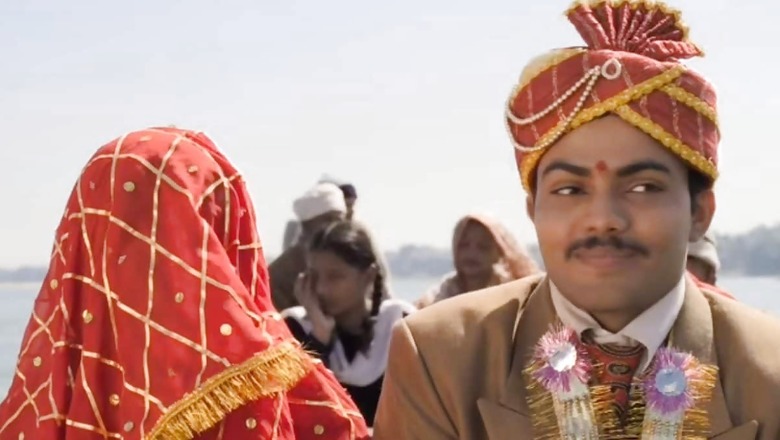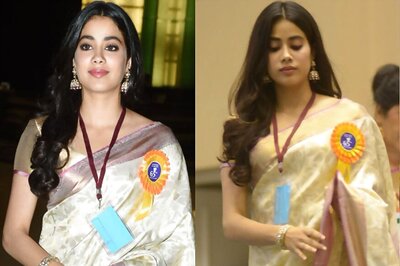
views
The veil covers the young bride’s face. Her newlywed husband brings her inside his home. When the bride’s face is unveiled, the young man is shocked out of his wits. This scene wasn’t from Laapata Ladies (2024). This was from Raj Khosla’s 1964 suspense thriller Woh Kaun Thi?, mistaken identity has been a time-tested trope in Bollywood. We are not merely talking about the obvious twins/lookalikes swapping places in Seeta aur Geeta (1972), Don (1978, 2006) and dozens of others. Let us explore a few ‘switches’ of other kinds varying from the flimsy to the intellectual.
Main Prem ki Diwani Hoon (2003), a curious case of two Prems, belonged to the former category. At her US-based sister’s behest Sanjana meets Prem Kishen reluctantly but falls in love with him. But the Prem who was supposed to court and marry Sanjana was the wealthy NRI Prem Kumar who is Prem Kishen’s boss. Sanjana learns about the mistaken identity, but what does she do now? This film was a remake of Chitchor (1976), a big commercial success. But MPkDH ended up as a stale fare in the box office, one of the reasons for which could have the credibility, or lack of it, of the core plot. Even in 2003, would a US-based person not have emailed a picture of the actual Prem to her sister Sanjana?
At the other extreme we have Fan (2016), a dark story about young Gaurav’s obsession for his superstar idol Aryan Khanna. Right from his childhood Gaurav has been possessed by Aryan and has been ‘living’ with Aryan every single day, has internalised Aryan’s traits and is famous in his locality as ‘Junior Aryan’. As the young fan claims, there was some ‘connection’ between him and Aryan and that perhaps God had created Gaurav with the clay that was left over after creating Aryan. This connection made Gaurav’s spooky resemblance to Aryan almost inevitable, creating the premise for the identity switch when the fan and star fall out after their hostile meeting. The switch is more of a psychological exchange of identities when Aryan becomes Gaurav and vice versa — till we cannot tell one from the other.
Plastic surgery as a tool for a switch of identity has been used by filmmakers in films like Yeh Vaada Raha (1982) and War (2019). In the former, young Sunita’s pretty face gets horribly disfigured in a car accident. She undergoes plastic surgery and gets a pretty face — but not the one she had prior to the accident. Will her fiancée recognise her? She changes her name to Kusum and takes a new identity altogether. Interestingly, the voices of Poonam Dhillon and Tina Munim playing Sunita the pre- and post-surgery were dubbed by Jaya Bachchan. In War a patriotic RAW operative Khalid is killed by a traitor Saurabh who then takes the identity of Khalid using plastic surgery. Saurabh in the guise of Khalid tries to poison to death Major Kabir but Kabir’s sharp observation of Khalid’s peripheral vision impairment unveils the imposter.
In vintage Bollywood two interesting identity switches come to mind.
Kati Patang (1971) was based on Cornell Woolrich’s story I Married a Dead Man. Madhavi gives in to her dying friend Poonam’s wish to take her identity and go to Poonam’s in-laws’ place. In this case Madhavi was actually helping her friend out and had no vested interest in playing the imposter. It was a switch for a good cause. Jewel Thief (1967) was truly novel with director Vijay Anand using a Hitchcockian concept called MacGuffin — that is, creating a character in the story that doesn’t exist at all. Prince Amar is believed to be the notorious jewel thief that the police were hunting for. Further, the information that Prince Amar was a spitting image of Vinay (the Police Commissioner’s son) is also planted by the gang. And then the gang captures Vinay and brainwashes him using electric shocks to make him believe that he was Amar. So, a real person takes the place of a non-existent one. And then the plan was to bump off Vinay to make the police believe that Amar was dead, while the real jewel thief hides in broad daylight.
Finally, Laapata Ladies itself is a ‘switch’. Shares actor-director Ananth Mahadevan, “One day, on the sets of the TV series Chamatkar (1995) that I was directing, Satyen Kappu revealed that when he had got married his wife was in a ghunghat and he made her sit at the bus station and went to find out the timing of the bus to Mumbai. When he came back, he found her missing. She had walked away with the porter who had picked up her trunk and she thought that he was her husband. And suddenly the light went on in the heads of Satyen Kappu, Farooq Sheikh and me at the same time: Oh shit! This is a story! So, I made this film called Ghunghat ke Pat Khol for Channel 9 from Australia which was telecast on DD Metro in 1998.”
He continues, “It was about a mass marriage in a village. At the railway station the brides get exchanged because of the ghunghat. When they come to Mumbai, they realise that they were with the wrong spouse. Bombay being Bombay it is difficult to even know your neighbor. Eventually through some stroke of fate they meet at the same railway station where they got exchanged. But when they go back to their respective homes the wives have started missing the other person because that man had treated her with so much dignity and respect. And then the question whether that marriage was just a question of marriage between two bodies or marriage of souls comes into play. In the climax they get remarried to the stranger they had met — with the suggestion coming from the grandmother who says, ‘Why not?’ And she adds, ‘This time remove your ghunghat’. Incidentally Hrishikesh Mukherjee saw it twice and called me to say: ‘Ananth, I loved the film’.”
Adds Mahadevan, “I felt hurt because no one acknowledges what you have done in 1998 and in 2024 they say it is a great masterpiece.”
Balaji Vittal is a National Award winning and MAMI Award winning author of Bollywood books, a columnist, a TEDx speaker and a Bollywood commentator. He can be reached on X (formerly Twitter) at @vittalbalaji and his website is www.balajivittal.com. Views expressed in the above piece are personal and solely that of the author. They do not necessarily reflect News18’s views.


















Comments
0 comment